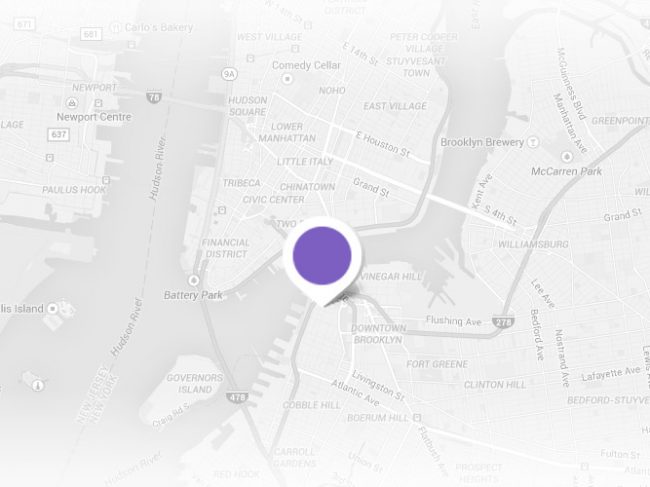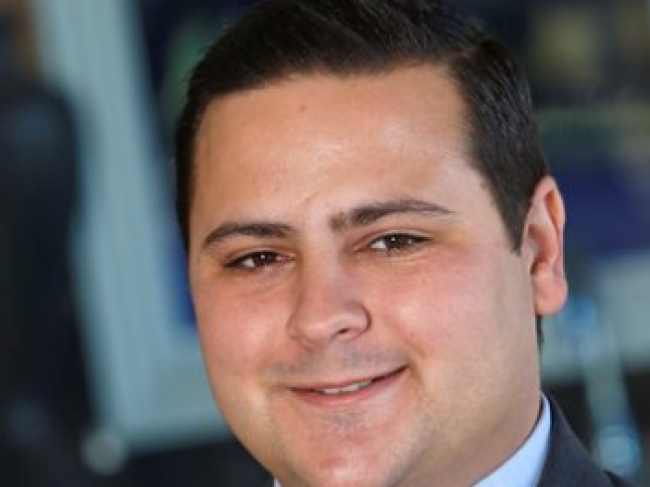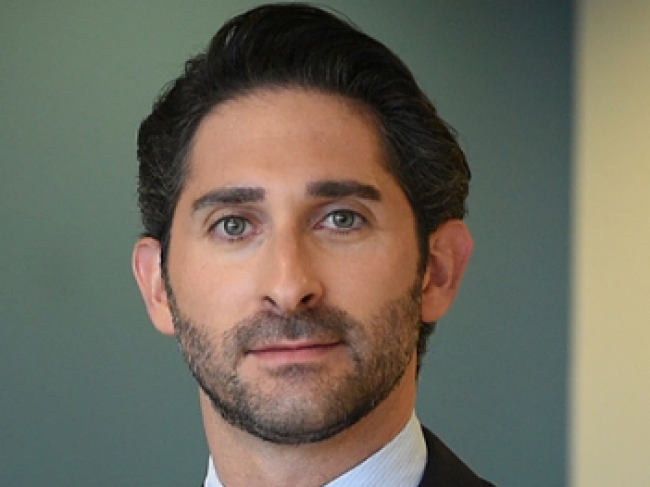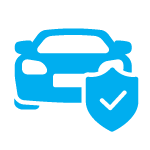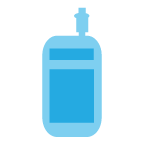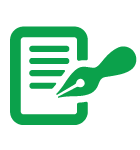After a CA DUI arrest, there are so many things on the line – like your driver’s license and your freedom. According to CA DUI law, your arrest triggers two separate cases: A criminal case in court, and another at the Department of Motor Vehicles (DMV). So, not only will you have to fight for your freedom after a California DUI arrest, but you will also have a case against your driver’s license.
CALIFORNIA DUI FAQ
Can I Still Drive if I Have Been Arrested for DUI in California?
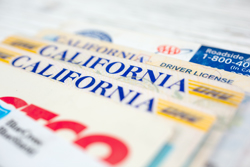
A temporary license in the form of a driving permit will be issued to you following a DUI arrest. This will allow you to drive for 30 days. You will have only 10 days from the date of your DUI arrest to request a hearing with the Department of Motor Vehicles (DMV) before your license is automatically suspended. If you request a hearing within those 10 days, there is a stay on any suspension which will allow you to drive without any restriction until the date of your hearing. This is another reason it is so important to get help from a California DUI lawyer. Your lawyer will understand how to request the hearing with the DMV and will be able to help you through the process of keeping your driving privileges. Talk to an attorney today to ask how you may be able to save your driver's license.
What Can I Expect From the Criminal Case After a DUI?
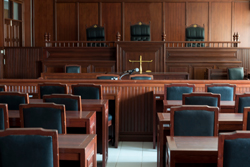 There are two ways in which the state of California can convict you of DUI. The laws are based on two different statutes: California Vehicle Code Section 23152 (a), and Vehicle Code Section 23152 (b).
There are two ways in which the state of California can convict you of DUI. The laws are based on two different statutes: California Vehicle Code Section 23152 (a), and Vehicle Code Section 23152 (b).
The first count
The first count focuses on whether you were under the influence of alcohol or drugs to the extent that you were “unable to drive their car with the same caution characteristic of a sober person, of ordinary prudence, under the same or similar circumstances.” This is the legal standard for being considered under the influence of alcohol or “DUI” in California courts. Your California DUI lawyer can explain more to you.
The second count
The second count, known as the “per se” charge, concentrates on whether your blood alcohol content (BAC) was .08 percent or greater. Whether you seemed to be driving perfectly before the traffic stop or performed field sobriety tests with textbook precision doesn’t matter with this count. It is a charge that is based purely on body chemistry. Regardless of the evidence against you, you are not guilty until the state proves that you are. That’s why you should consult with a DUI lawyer immediately. You may be able to escape punishment in your case.
Remember, punishment for a California DUI conviction in criminal court is completely separate from your driver’s license hearing.
What Are the Penalties for a CA DUI Conviction?
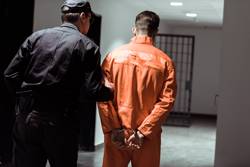 DMV Penalties
DMV Penalties
The California DMV will suspend your driver's license for a minimum of four (4) months for a first-offense California DUI arrest if you lose the hearing. The DMV will suspend the driver's license for one year for a second offense and two years for a third offense. These are the repercussions faced by California drivers who submit to a chemical test of their blood or breath. In the case of a refusal, the DMV punishment is increased: a first-offense will trigger a one-year suspension with no opportunity for a restricted license. A second offense with refusal will result in a two-year suspension, and a third offense will cause a three-year suspension.
Even motorists licensed in other states who are arrested for DUI in California must request a California DMV hearing to protect their driving privileges. California is one of 45 states that participate in the Interstate Driver's License Compact, an agreement to share information about DUI or DWI convictions and driver's license actions with other member states.
DMV PENALTIES FOR DRIVING UNDER THE INFLUENCE OF ALCOHOL AND/OR DRUGS:
| OFFENSE | BLOOD ALCOHOL CONTENT (BAC) | LICENSE PENALTY |
|---|---|---|
| FIRST offense | .08 or greater | 4-month suspension |
| FIRST offense with refusal | NA | 1 -year suspension |
| SECOND offense (within 10 years) | .08 or greater | 1- year suspension |
| SECOND offense with refusal (within 10 years) | NA | 2-year revocation |
| THIRD offense (within 10 years) | .08 or greater | 3-year revocation |
| THIRD offense with refusal (within 10 years) | NA | 3-year revocation |
| FOURTH Offense (within 10 years) | .08 or greater | 4-year revocation |
| FOURTH offense with refusal (within 10 years) | NA | 4-year revocation |
California Criminal Penalties
How serious are your charges? First offenders face 96 hours to 6 months in jail, $390 to $1000 fines, and a 6-month license suspension. Certain drivers may face felony DUI charges after a California drunk driving arrest. Anyone with three prior drunk driving convictions within the past 10 years will be charged with a felony after a fourth arrest. A driver who causes injury to another person also may face felony charges. Also, any motorist who has been charged with felony driving under the influence within the past 10 years will be charged with another felony for any subsequent drunk driving arrests within that time period. If you are concerned about your case and whether or not you will be facing felony charges, speak to a California DUI lawyer right away.
California has a DUI "washout" period of 10 years, calculated from the initial arrest date to the newest arrest date. This means that anyone arrested for drunk or drug driving within 10 years of the last arrest date will be charged with a second offense, with increased penalties and punishment. The punishment in court for a second or third drunk driving conviction is much harsher than for a first offense - a multiple-offense drunk driving conviction carries mandatory jail time, an 18-month alcohol education program, a required ignition interlock device, and more.
CRIMINAL SENTENCES FOR DRIVING UNDER THE INFLUENCE OF ALCOHOL AND/OR DRUGS (VEHICLE CODE SECTION 23152):
| OFFENSE | MINIMUM AND MAXIMUM SENTENCES WHEN PROBATION IS GRANTED (3 TO 5 YEARS PROBATION TERM) | MINIMUM AND MAXIMUM SENTENCES WITHOUT PROBATION |
|---|---|---|
| FIRST offense within 10 years | Two options, both requiring attendance at a 3 month or 6-month alcohol/drug program, a fine of $390 to $1000, plus either: (A) 48 hours to 6 months in jail; or (B) for arrests prior to September 20, 2005, a 90-day license restriction. Under option (A), the Court may also suspend your license for 6 months. Under either option, your license shall be suspended for 6 months if the offense occurred in a vehicle that requires a class 1, 2, A, or B license. As a result of the court conviction, the DMV will suspend your license for 6 months, but a restricted license may be available | 96 hours to 6 months in jail, $390 to $1000 fine, and a 6-month license suspension. |
| SECOND Offense within 10 years | Two options, both carrying a fine of $390 to $1000, plus either: (A) 10 days to 1 year in jail and a 2-year license suspension; or (B) 96 hours to 1 year in jail, an 18-month or 30-month alcohol/drug program, and for arrests prior to September 20, 2005, a license restriction allowing driving only for work and alcohol/drug program for the duration of the program. However, your license shall be suspended for 2 years if the offense occurred in a vehicle that requires a class 1, 2, A, or B license. Installation of an ignition interlock device for up to 3 years. As a result of the court conviction, the DMV will suspend your license for 2 years, but a restricted license may be available after the first year of suspension. | 90 days to 1 year in jail, $390 to $1000 fine, and a 2-year license suspension. |
| THIRD Offense within 10 years | 120 days to 1 year in jail, $390 to $1000 fine, a 3-year license revocation, and an 18-month or 30-month alcohol/drug program if you have not completed one before. | 120 days to 1 year in jail, $390 to $1000 fine, and 3-year license revocation. |
| FOURTH or Subsequent Offense within 10 years | 180 days to 1 year in jail, $390 to $1000 fine, a 4-year license revocation, and an 18-month or 30-month alcohol/drug program if you have not completed one before. | 16 months, or 2 or 3 years in state prison, or 180 days to 1 year in county jail; $390 to $1000 fine, and 4-year license revocation. |
Sentencing Enhancements
What are they, and what impact do they typically have in court?
- Refusal to take the chemical test;
- BAC .20 or higher;
- Speeding 20 miles per hour above the speed limit on side streets, or 30 mph over the speed limit on the freeway, where driving recklessly and DUI, requires 60 days in jail;
- Minor in the car while driver DUI;
- Traffic Accident;
- Prior convictions.
Any of these sentencing enhancements can result in additional fines, jail time, impounding of the car, required attendance at AA meetings or other educational programs, attendance at a Mothers' Against Drunk Driving Victim Impact Panel, attendance at the Hospital, and Morgue Program, or other possible consequences.
Will I Receive Points on My License if I Get a DUI?
California DUI arrests (also known as DWI) trigger two separate cases: the DMV action, where a person's driving privileges hang in the balance, and the court case, where a variety of DUI punishment is available.
For anyone charged with drunk driving in California, it is vital to note that persons arrested for DUI have only 10 days from the date of arrest to request a hearing with the DMV. If someone arrested for drunk driving does not request the hearing on time, his or her license will be suspended, automatically, on the 30th day following the arrest.
If you are charged with any vehicle code violation:
The Point System:
Each time you forfeit bail, plead or are found guilty on a moving violation, you receive a point or two points on your DMV driving record. A moving violation includes most violations except parking, bicycle, pedestrian, registration, and defective equipment matters.
Two Points Are Charged Against You If You Are Convicted Of:
- Drunk driving;
- Reckless driving (showing disregard for, or risk of causing injury or property damage, or causing injury or damage by recklessness);
- Reckless driving (alcohol);
- Hit-and-run driving;
- Driving while your license is suspended;
- All other offenses count as one point;
The Department Of Motor Vehicles May Suspend Your License Up To Six Months:
If you receive four points in one year, six points in two years, or eight points in three years.
Insurance:
Another of the consequences of pleading or being found guilty of forfeiting bail for a moving violation is that many insurance companies raise the premiums, and sometimes even cancel your insurance.
Are There Any Sentencing Alternatives in California?
The following is a list of alternative sentencing schemes that are offered in various courts throughout California. NOT ALL OF THESE ALTERNATIVES ARE AVAILABLE IN EVERY COUNTY. There is much variation from county to county, and even within various courthouses within a given county. Therefore, it is critical that you contact an attorney that is familiar with the practices in the court where your case will be heard.
Private Jail
Private jail, also known as "city jail" is an opportunity for non-violent offenders to serve their time in a non-threatening environment, often a local police station or separate facility. Accommodations are much nicer than county jail, and often include private rooms instead of cells, the opportunity to bring books or laptop computers, and better food that the "inmates" sometimes cook themselves. The downside: cost. Most private jails or city jails charge at least $50.00 per night, and often more.
Also, most judges will not give "good time" credits for time spent in private jail. When someone is sentenced to county jail, they will typically serve 2/3 of their sentence, due to extra "good time" credits that are given. (There are some sentences that require as much as 85% of the sentence to be performed; this also does not take into account some early release programs due to jail overcrowding.) However, for city jail sentences, where, for example, 10 days of jail is ordered, the defendant will actually serve 10 days in jail.
Roadside Labor
Cal-Trans labor is a frequently assigned jail alternative in DUI or drunk driving sentence. It involves picking up trash on the side of the freeways, or other kinds of relatively hard labor duties. As with city jail, good-time credits are not given.
Other Labor
Community Service or Graffiti Removal are two other kinds of alternative sentences in DUI cases. Community Service tends to be a much lighter and less arduous assignment than Cal-Trans. It may involve working at a county-run thrift shop, volunteering at a church or school, or other similar light work.
Work Release
Some counties, such as Ventura, have a work release program as an alternative to jail. It is similar to Cal-Trans work, although the labor is assigned based on physical ability. The good news: you get to go home at night and sleep in your own bed.
Work Furlough
Some counties, Ventura, for example, have a work furlough program. Typically, this program is only available to persons that receive a sentence of 30 days in jail or more. Work furlough is a dorm-like setting, where "inmates" are allowed to leave each day to go to work, and must return to the dorm each evening to spend the night.
Alcohol or Drug Rehabilitation
Sometimes, people are arrested for drunk driving because of bad luck, or as the result of exercising bad judgment on one particular, isolated occasion. However, other times people are arrested for drunk driving or some other DUI offense because they suffer from an alcohol or drug problem.
For these people, one effective sentencing alternative may be time spent in rehab. California Penal Code Section 2900.5 allows for time spent in an alcohol or drug rehabilitation center to count just like jail time. If the time spent in the rehab program exceeds the amount of jail that the court ordered, the extra time may be credited towards fines that are owed to the court. An alcohol or drug rehabilitation program will often be covered by health insurance. A typical program will last as long as 28 days, or more, depending on need.
Sober Living Environments
Like alcohol and drug rehabilitation programs, Penal Code Section 2900.5 allows for time spent in sober living environments to count towards a jail sentence, or to count towards some of the fines and fees imposed by the court as the result of a DUI or drunk driving case.
Many people who enter into a formal rehabilitation program will transition into a sober living environment after completion of the rehab program. This is especially true if the sufferer requires a medically supervised "detox" program.
However, many individuals do not require such an intensive "detox" program and can go directly into sober living. The chief benefit of sober living over rehab is that many sober living residents are allowed to leave to go to work during the day, returning to the sober living house at night for group meetings or to attend 12-step meetings outside the house.
Electronic Monitoring
Some courts will allow electronic monitoring as an alternative to traditional jail sentences for people convicted of drunk driving. The monitoring is usually done through the probation department, or through an outside company that contracts with the probation department. People on electronic monitoring are fitted with an ankle bracelet that electronically communicates with the communication center if the person leaves their home without permission. Often, people on electronic monitoring are allowed to leave to go to work, to do laundry, grocery shopping, or attend to other court-ordered programs or personal errands. Electronic monitoring is probably the least restrictive of the sentencing alternatives for those convicted of DUI or any kind of drunk driving offense.


